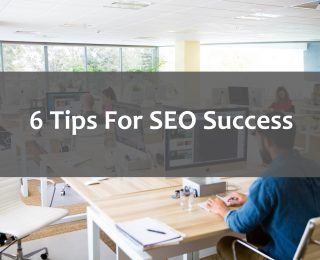It’s about time
For smart business owners, marketing never stops.
That’s especially true in today’s digital world, where trends, technology and algorithms that drive search results change regularly. To keep up, your digital marketing strategy should include an ongoing effort.
But how long should an individual marketing campaign last?
Digital marketing isn’t a one-time effort, and while it can make an immediate impact, full optimization takes time. Even after you’ve achieved acceptable performance, ongoing optimization is critical to keep competition at bay and costs down.
One of the main advantages of digital marketing is the ongoing collection of performance data. By using Google Analytics and other post-click performance tools, you can see what’s working and what’s not, and shift resources and creative energies accordingly. Individual Key Performance Indicators (KPIs) can help you make changes in ads, placements, keywords, match types, day parts, plus contextual, lifestyle, demographic and geographic targeting, among many other campaign attributes.
The effective length of a digital marketing campaign can vary widely based on factors such as your budget, industry, competitors, consumer habits and campaign style.
Still, there are basic guidelines that can be used as a starting point for setting up and measuring a campaign’s success.
Typically, it takes at least 90 days to build momentum around a digital marketing effort, most of which generally extend six to 12 months.
Like traditional forms of marketing, digital marketing requires frequency of ad impressions to make an impact. Customers need to see your brand and product or service images and message repeatedly before it sinks in. Repetition builds recognition, trust, and ultimately, preference. And this takes time. On the other hand, if a specific message or image runs too long, advertising fatigue could sink in. In other words, when people see the same ad too many times, it becomes white noise and they stop noticing it.
While a campaign may last several months, a specific message should change more often. Changing creative every 45-60 days is ideal. Research shows that 45 days is about how long it takes a consumer to retain and recall information.
Marketing efforts involving simpler products or services, or from recognized brands, may call for shorter campaigns. For example, political campaigns and promotions for concerts, shows and events should generally run for a shorter time.
Multi-channel campaigns typically contain one message spread out over most or all of your channels.
The following guidelines can be helpful in determining the length of a channel-specific digital marketing campaign:
Content marketing
• A content marketing campaign typically lasts around six months, depending on how frequently you post.
• Hubspot found that companies with at least 400 blog posts per year get twice the traffic as those with less than 400.
Search Engine Optimization
• A typical SEO campaign takes at least 12 months to be fully optimized.
• The first month is spent evaluating keyword performance data, competitors and your current SEO performance.
• The second and third months are spent on primary on-site optimization (website changes) as well as off-site optimization that includes social account updates.
• The remainder of the years is spend optimizing for specific terms including both on-site and off-site optimization including website changes, new pages and blog posts as well as off-site optimization including social media marketing, link building and online directory listing optimization. A competent digital marketing agency will also implement numerous proprietary SEO tactics based on years of experimentation and performance analysis.
• Improvements in organic rank will typically begin within three or four months.
• After a year to 18 months, improvements from SEO typically begin to level off. From this point, ongoing SEO is important to maintain rank and keep competition at bay. This is also a good time to focus on any new products, services or events.
• Search Engine Journal published a case study that showed it typically takes four to six months of sustained effort to generate 100 or more organic search results per day on a new website.
Paid search
• Paid search generally produces the fastest results for the lowest initial investment and is therefore, a good short-term strategy.
• Paid search is an excellent precursor to SEO in that it can identify top-performing keywords relevant to your market.
• It can complement an SEO campaign – for low-ranking organic keywords, Paid Search fills the gap.
• As your SEO campaign begins to generate results for specific keywords, you may choose to discontinue paid search for those terms.
Social media
• Social media is a good platform for communicating with fans and followers. By utilizing targeted keywords in social media communications, it also can support an SEO campaign.
• A smart social media effort should ongoing and integrated with a content marketing plan that includes blogging, PR, article submission and email marketing.
• Social media advertising is critical in order to build your fan base and generate website visits from targeted users outside of your current fan base. While the performance of social media communications can be difficult to evaluate, social advertising performance can be more easily measured if using Google Analytics or other tracking tools.
If you’d like to learn more about building and launching a digital marketing campaign, or if you’d like a free evaluation of your digital marketing strategy or performance of a current or recent campaign, feel free to contact us here at AdEdge at (203) 682-4585 or email us at info@adedgemarketing.com.

